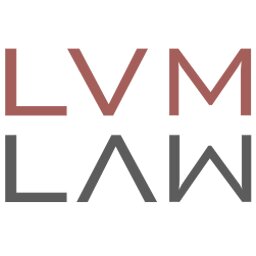Best Will & Testament Lawyers in City Hall
Share your needs with us, get contacted by law firms.
Free. Takes 2 min.
List of the best lawyers in City Hall, Singapore
About Will & Testament Law in City Hall, Singapore
The field of Will & Testament Law in City Hall, Singapore is primarily regulated by The Wills Act, which details the rights and responsibilities surrounding will writing, execution and amendments. In order to be legally valid, a Will must be in writing, signed by the testator and witnessed by two individuals who will not benefit from the Will. The law also covers matters outlining the circumstances under which a Will can be invalidated and how it can be successfully contested.
Why You May Need a Lawyer
Writing a Will can be quite complex and a simple oversight can render it invalid. A lawyer can help you understand the legal technicalities and ensure your Will is legally binding. If you have property or assets overseas, a lawyer can ensure your Will aligns with the laws of those countries. They can also assist you in circumstances where your Will is contested, needs amendment, or in cases where there's no Will and the rules of intestacy must be followed.
Local Laws Overview
In Singapore, the Wills Act governs the creation and validity of Wills. The key aspects of the law stipulate that the testator must be at least 21 years old and be of sound mind at the time of writing the Will. For a Will to be valid, it must be in writing, signed by the testator, and witnessed by two individuals not included in the Will. Wills can be revoked by marriage, the creation of a new Will, or by the physical destruction of the Will by the testator.
Frequently Asked Questions
1. Can I draft a Will on my own?
Although the law permits you to draft your own Will, it is advisable to engage a lawyer due to the complexity of the issues involved, such as tax considerations and ensuring the Will's validity.
2. What happens if I die without a Will?
If you die without a Will (intestate), your estate will be divided according to Singapore's Intestate Succession Act. This might not necessarily align with your wishes for the distribution of your assets.
3. Can I write a joint Will with my spouse?
While joint Wills are not prohibited under Singapore law, they are typically not advised as situations may change and individual wills offer more flexibility.
4. Can I change my Will?
Yes, a Will can be changed or revoked at any time as long as you are of sound mind. This should ideally be done with legal help to ensure validity.
5. What if someone contests my Will?
If your Will is contested, it may be declared partially or entirely invalid if the challenger successfully proves issues like forgery, lack of capacity, or undue influence. Having your Will drafted by a legal professional can reduce the chances of successful contestation.
Additional Resources
The Singapore Academy of Law and The Law Society of Singapore offer various resources to understand Will & Testament laws better. You can also refer to the Singapore Legal Advice website for more information and to seek free legal clinic services.
Next Steps
If you need legal assistance in drafting or amending a Will, look for a lawyer who specializes in Will & Testament Law. Consult with them to understand the intricacies of your situation and to ensure that all your wishes are laid out correctly in your legal documents.
Lawzana helps you find the best lawyers and law firms in City Hall through a curated and pre-screened list of qualified legal professionals. Our platform offers rankings and detailed profiles of attorneys and law firms, allowing you to compare based on practice areas, including Will & Testament, experience, and client feedback.
Each profile includes a description of the firm's areas of practice, client reviews, team members and partners, year of establishment, spoken languages, office locations, contact information, social media presence, and any published articles or resources. Most firms on our platform speak English and are experienced in both local and international legal matters.
Get a quote from top-rated law firms in City Hall, Singapore — quickly, securely, and without unnecessary hassle.
Disclaimer:
The information provided on this page is for general informational purposes only and does not constitute legal advice. While we strive to ensure the accuracy and relevance of the content, legal information may change over time, and interpretations of the law can vary. You should always consult with a qualified legal professional for advice specific to your situation.
We disclaim all liability for actions taken or not taken based on the content of this page. If you believe any information is incorrect or outdated, please contact us, and we will review and update it where appropriate.













